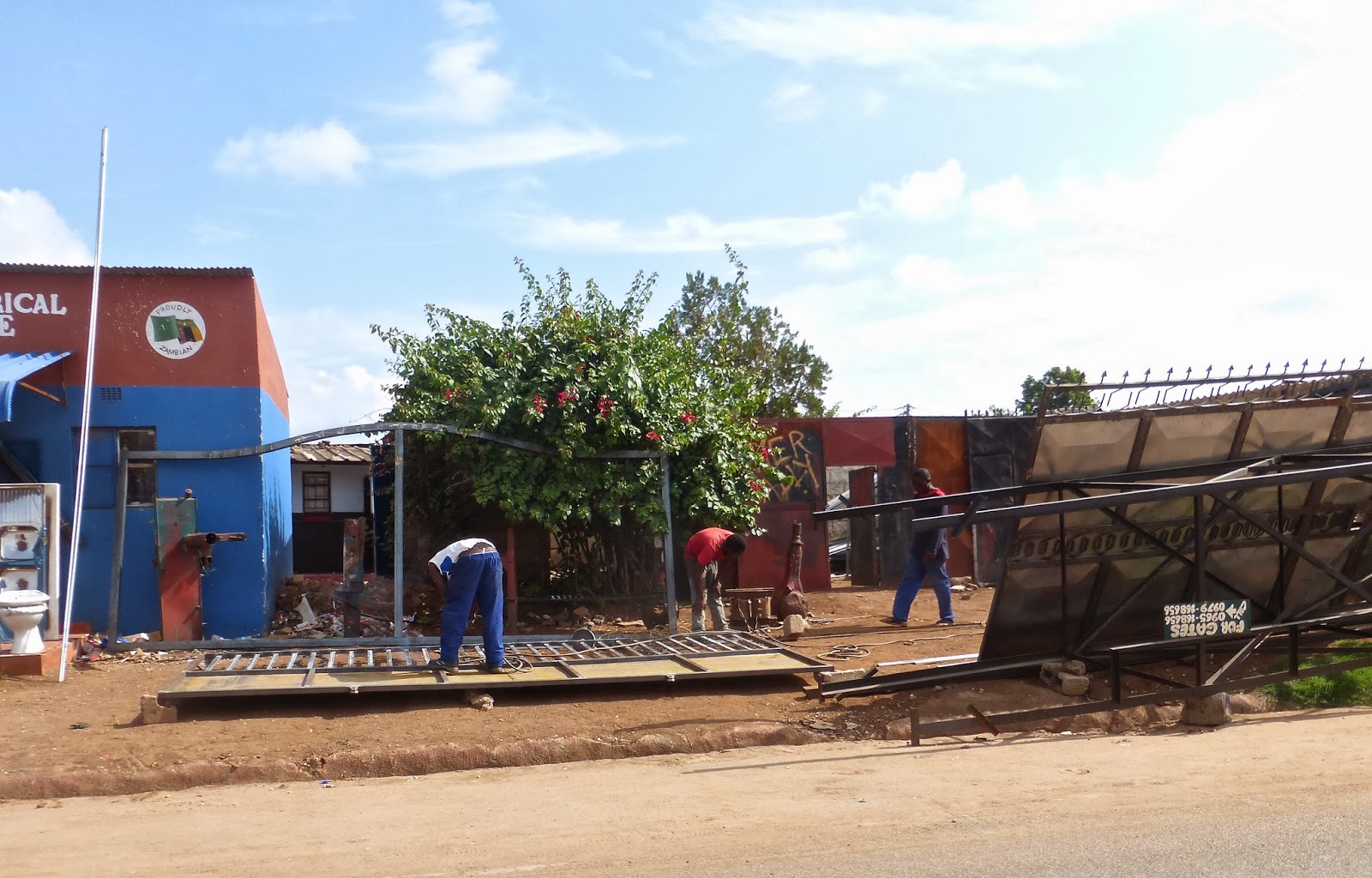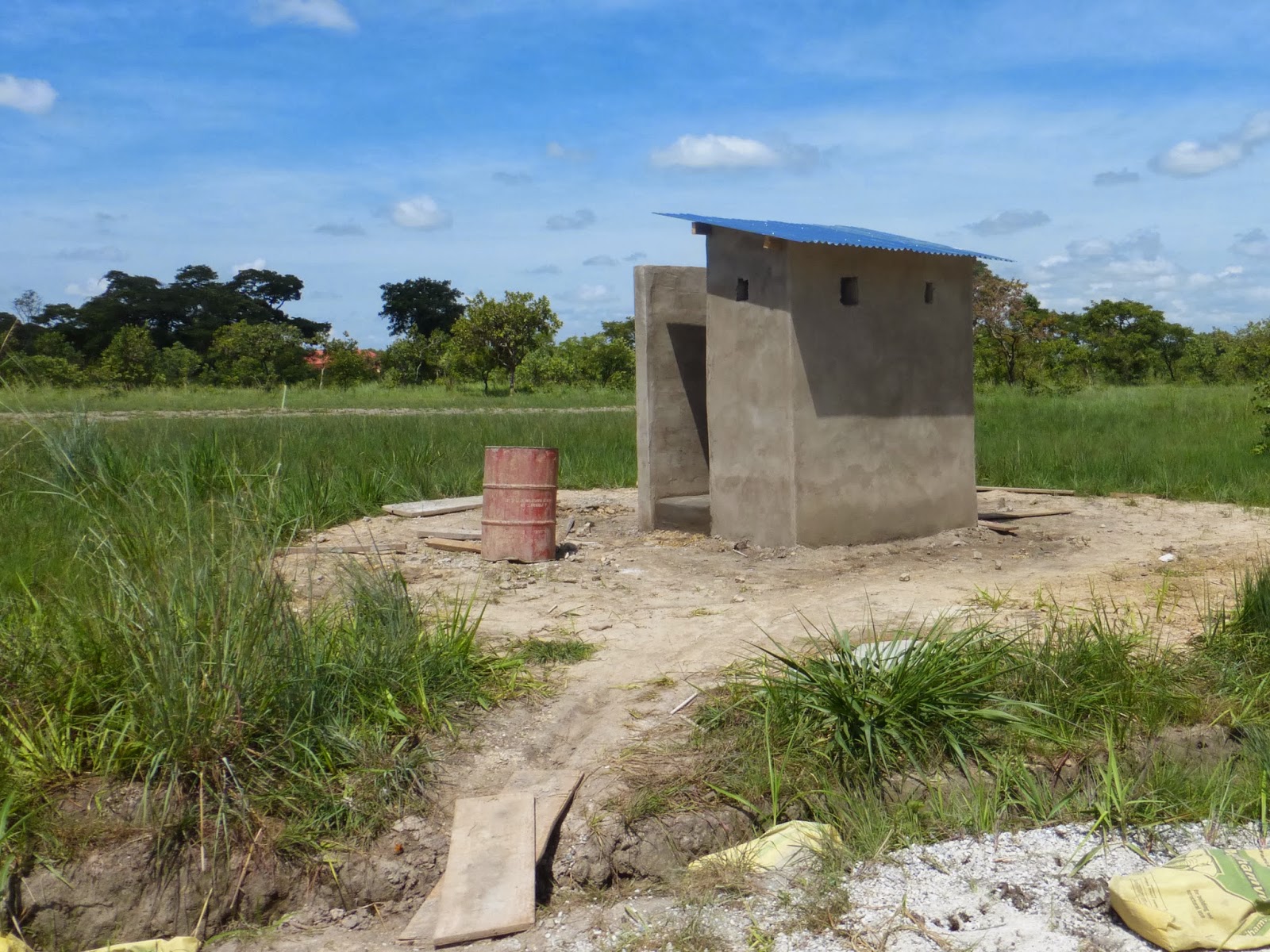Alick Nkhata was a popular Zambian broadcaster and musician. This road that is named for him runs in front of the area known as Mass Media or the hub of Zambian broadcasting. We drive down this street everyday. Other senior missionaries refer to it as the "Home Depot" street. If you are building a home or repairing one, this is a good place to start looking for supplies.
One group of craftsmen are the metal workers. Businesses tend to clump together when they have a similar product much like in the U.S. There are many metal workers in Lusaka, as there is much building going on. Next to that trade are the tin smiths. They produce all sizes of tubs and buckets, along with watering cans and many many chicken feeders.
Door and window frames are a staple.
The metal is laid out wherever there is room. I am amazed that items turn out flat and square.
Mbaula's are produced and sold everywhere.
Perhaps you would like to splurge and get the sink model but I have never seen one used.
Recently, a new billboard appeared in this neighborhood. The sign encourages the use of new the improved mbaula. I don't know where you would buy one yet. They appear to be more efficient and more difficult to make, therefore more time and materials and hence more cost to the consumer. These are all the same difficult choices we make. Do we just look out for ourselves or do we sacrifice a little for the good of the community?
Here is a welder producing a special order.
Some welders specialize in playground equipment.
At the end of the day many men congregate here to chat, sitting on slides and swings. There are not many places to sit along the road otherwise.
Here is a new project just beginning.
Lately, there have been quite a few water towers for tanks made.
It wasn't placed next to the road. It was made right there and painted there.
Many people help when it is delivery time and a truck needs to be loaded.
I believe only the main crew of three are going to get paid anything but people are very helpful and very happy for others' good fortune.
Here is a typical shop that does a little of everything.
Most of the metal workers have a storage container to store the raw materials in.
At first I couldn't understand why they would point them at the road. Every time a 20 foot piece of rebar or angle iron is removed, traffic must stop. I thought, this is ridiculous. Now I realize the property they work on is only 20 feet deep. This makes for a little inconvenience but optimal use of the space they have.
Gates are a big business. Here is where a metal worker can show off his artistic skills.
I do worry about them being propped up with just one board and kids playing around them.
When I got out and chatted with them one day I noticed they were mostly propped up with metal and it was driven into the ground. But still ….
Wherever there is room, commerce takes place.
A gate installed will run you about $ 1200 US dollars for a simple one to about $ 2000 for the most intricate design depending on how much steel is used.
There are a lot of funny signs around and made funnier to me by the misspellings. I believe Xavier was a catholic saint. I don't think even the Catholics would understand what is meant by "Ex Savior".
Window bars or grills.
Different designs.
Most stands are wood and cardboard but one metal worker is now putting out all metal shops. This one is quite futuristic but lately the more traditional square with overhangs for the rain are being made.
That is a lot of heavy steel to be packing!
One grinder and one electric welder and you are in business - as long as the electricity stays on.
New project being laid out.
This one is ready to go.
More options.
This is the type of home made welder that everyone uses. I have never seen acetylene bottles.
Do you think that looks a little dangerous? Remember it rains often and hard and there are BIG puddles!
Another layout.
I asked if I could see their welding glasses. They are just normal sunglasses and none of them were as dark as mine. What sort of vision will they have in twenty or even ten years?
I never walk in the footprint of these traps.
So life goes on, on Alick Nkhata road. Hard work, six days a week, some beer and music on weekends. Slowly, the family improves its' circumstances, but perhaps the welder will have to change careers because of damaged retinas?
I must look for welding goggles and convince them to wear them.
If anyone has an extra box - please send them over.




































































